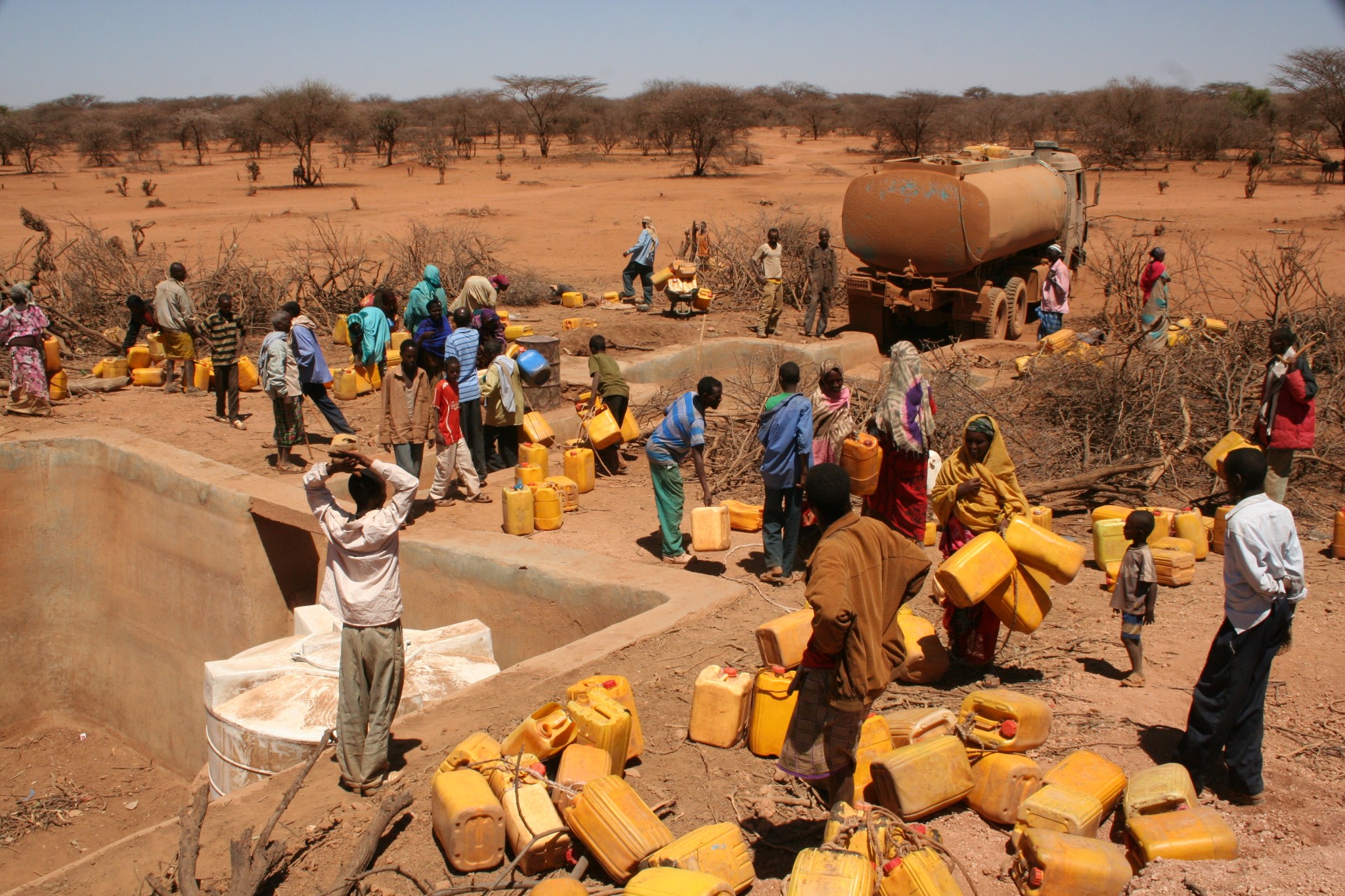Why Supporting Local Governance is Key to Service Delivery and Water Security in sub-Saharan Africa

From public health to education, a lack of access to clean water has a reverberating impact on the daily lives of millions of people around the world — making water scarcity an issue of paramount importance for anyone concerned with issues of sustainable development and women’s rights.
According to World Bank data, today more than 2.1 billion people do not have consistent access to safely managed water, and 844 million are without a basic drinking water service. Lack of access to clean water has potential to increase wide-spread disease, stagnate economic growth, foster insecurity and state failure, and reduce the capacities of countries priorities which support U.S. national interests. To help manage these challenges, the United States works around the world to support water security and ensure all people have sustainable supplies and access to clean water.
The lack of universal access to clean water represents a broader global challenge, yet rural communities throughout sub-Saharan Africa make up the majority of vulnerable people. The U.S. Government supports the region to increase the number of people in households and institutions with sustainable access to safely managed drinking water services.
Critical improvements have been made to the overall implementation (output) of clean water resources, but sustainable access to clean water continues to be threatened. The Rural Water Supply Network reports that more than 60,000 clean water hand pumps are installed across sub-Saharan Africa every year. Despite such progress, efforts to expand access to clean water are severely hampered as 30-40 percent of those pumps in the region do not work at any given time. Once broken, hand pumps are often abandoned and fall into disuse. The World Bank has estimated a loss of investments totaling more than $1.2 billion over the last 20 years because of this.
By supporting local governance in sub-Saharan African countries, IRI has undertaken an important step to ensure access to sustainable water service delivery in afflicted communities. Across Africa, IRI facilitates citizen-government working groups, utilizes technology platforms to collect citizen input on policy issues and promotes best practices through peer-to-peer exchanges to enhance government accountability and responsiveness to constituent needs. In South Africa, IRI strengthens local governance by increasing local-level knowledge of service delivery challenges. Through data driven research, increased citizen engagement and local government capacity building, IRI supports local governments in South Africa to more effectively address citizen needs and facilitate engagements between citizens and local officials. Also, in Nigeria, IRI trains political party representatives to close the gap between elected officials and citizens, and allows for greater participation and action promoting sustainable Water, Sanitation and Health (WASH) services.
Given IRI’s experience across the continent in supporting the capacity of local governments and better connecting them with constituents to enhance public service delivery, we are well positioned to contribute toward supporting the objectives of the US Global Water Strategy, and the UN Sustainable Development Goal of universal and equitable access to safe and affordable drinking water for all by 2030.
Water points most commonly fail for one reason: poor quality control in part manufacturing. As such, ensuring proper maintenance procedures to replace the broken parts in a timely fashion is key to providing reliable access to clean water in the region. In rural sub-Saharan Africa, volunteer community driven committees often carry out water management responsibilities. Made up of local men and women, these water committees are ultimately responsible for managing their respective water sources. Regional governments and donors regularly promote community oversight and establish and train water committees. Community members are provided knowledge on the overall maintenance process so that they can replace parts and bring water pumps back online quickly.
Despite the community led approach, water committees often lack the proper training and structural capacity to carry out proper maintenance; resulting in inaccessible clean water sources for extended periods. Local municipal governments lack the overall capacity to provide proper support to efficient water service delivery as well, and therefore have little or no capability to aid in water supply management. A significant gap in aggregated information of the precise number and status of water pumps makes understanding the breadth of the current situation difficult and determining solutions even harder.
To strengthen rural water service delivery, there is a need for increased information sharing between the local authorities and communities, and a proper communication platform to do so. Increased coordination between governments and communities offers greater opportunity to help determine timely solutions to repairing water point breakdowns and maintain sustainable water points. When representatives are informed of their constituents needs, national governments support the local governments’ ability to enhance water service delivery. With an integrated approach, investments in water development become more sustainable over time, and strengthen WASH interventions.
IRI’s experience and unique approach to supporting local governance not only offers an opportunity to provide technical capacity building to local governments but can additionally bridge a working relationship between constituents to support sustainable water service delivery. As policy makers continue to make significant progress in implementing clean water sources, IRI is poised to complement these efforts in support of the US Global Water Strategy Objectives and to ensure UN Sustainable Development goals are successfully realized by 2030.
Top